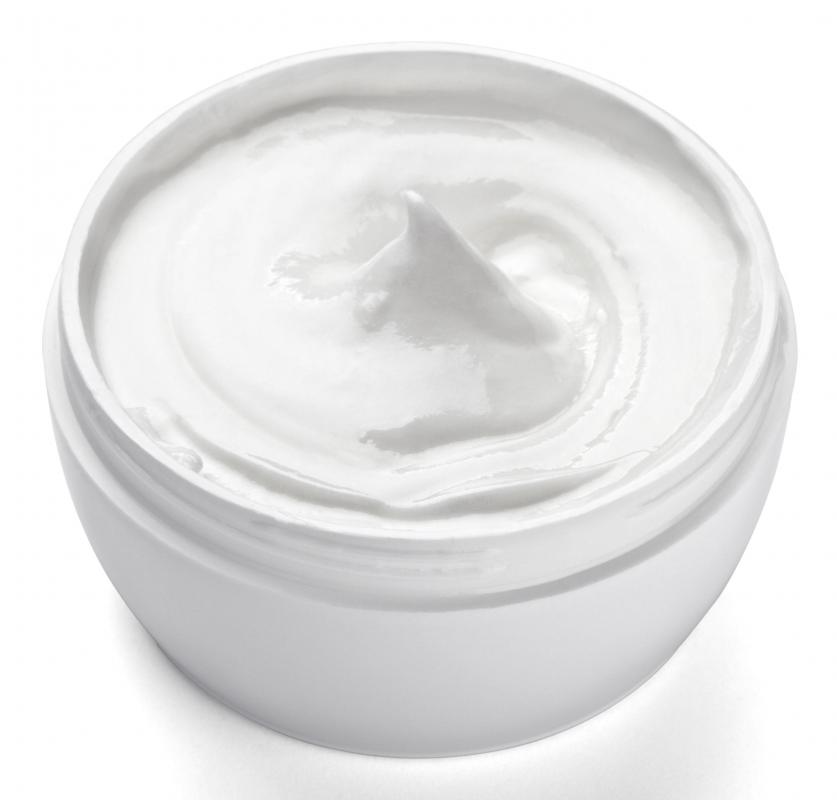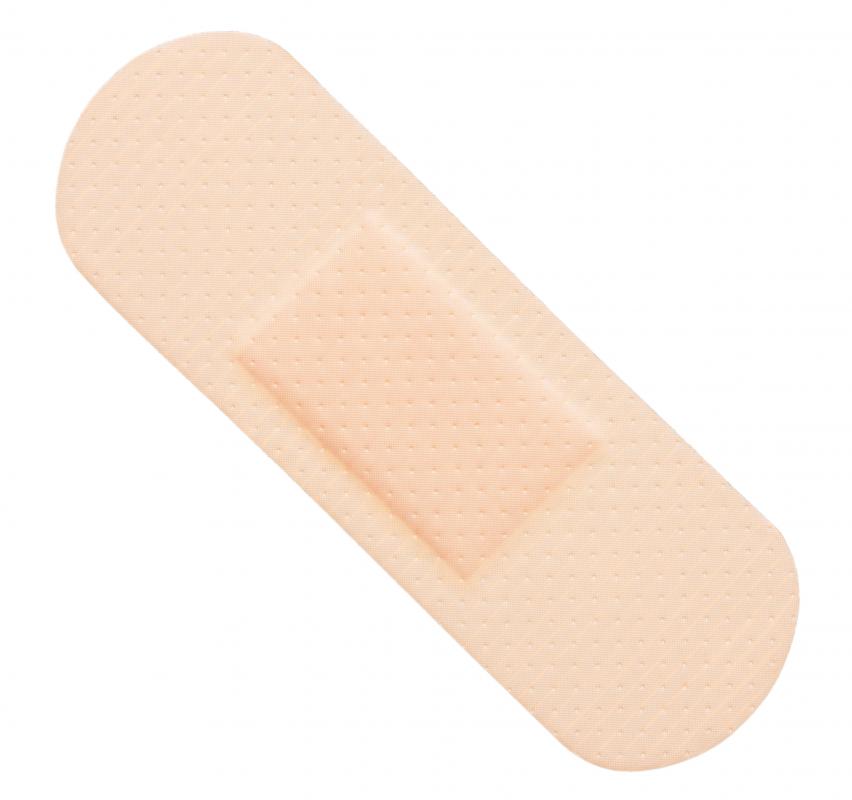At TheHealthBoard, we're committed to delivering accurate, trustworthy information. Our expert-authored content is rigorously fact-checked and sourced from credible authorities. Discover how we uphold the highest standards in providing you with reliable knowledge.
What Is Bandage Glue?
Bandage glue is a medical grade adhesive that when subjected to pressure, becomes sticky, causing the bandage to adhere to the skin surrounding a wound. Some of the compounds used in a medical adhesive can cause irritant contact dermatitis (ICD) after the skin is subjected to prolonged exposure to the glue. Many transdermal patches, including nicotine replacement patches and opioid painkiller patches, are coated with a thin layer of bandage glue to secure the patch to the skin. Most glue residue left on the skin after a bandage has been removed can be eliminated after washing the area with soap and warm water.
There are many different types of bandage adhesives. One kind of bandage glue is made of an acrylate polymer resin; the adhesive is activated by contact with the skin. This type of bandage glue is known for its strength and flexibility, as well as the rapidness of the glue set-up. Another type of bandage glue is a called hydroabietic acid.
Some medical glues have additives mixed into it, causing the glue to behave in a different way. One of these additives is called benzoyl peroxide, which is used to increase the stretchiness of the adhesive.

Pressure-sensitive glue is placed on the backing of a wound cover when it is manufactured. The glue is not sticky until it is activated by the weight of the fingers when the bandage is being used. Most adhesive bandages feature a thin sheet of coated paper layered over the glue to prevent it from becoming contaminated before the bandage is applied to the skin.

A few people may experience an unpleasant skin reaction to the bandage glue. The site of the adhesive placement can become itchy, red, or swollen. Some patients develop hives under the glue after just a short time with the bandage in place, causing a condition called irritant contact dermatitis. Other patients do not experience any skin reactions until after the bandage has been in place for several days. Allergy testing performed on several types of bandage glues has shown that the abnormal skin reactions are not caused by a true allergic reaction to the glue compound.

Removing bandage glue residue is often difficult. First, the bandage adhesive remaining on the skin should be left exposed to the air for ten minutes; as the glue dries, it will lose some of its stickiness. Most of the glue residue will come off the skin after being washed with warm water and liquid dish soap. Facial cold cream or baby oil can be rubbed into any lingering glue residue to aid in the removal process. Once the cold cream or baby oil has soaked into the skin, a slightly damp washcloth can be used to wipe away the residual bandage glue and the cream or oil that has not been absorbed into the skin.
AS FEATURED ON:
AS FEATURED ON:














Discussion Comments
I agree that the ingredients should be listed on items like bandages. Maybe it would sometimes work for your sister to buy some elastic at the fabric store and sew different sized circles of different lengths to hold plain gauze in place instead of a sticky bandage. She could put one elastic circle over each end of the gauze to help hold it in place. This isn't a perfect solution, but it may help sometimes. The elastic would be reusable and washable.
There is also something called liquid bandage or skin glue that basically closes openings in skin without the need of bandages. Many people use this post surgery to seal catheters and colostomy bags.
@SarahGen-- Could she be allergic to latex? Has she tried latex-free bandages?
It sounds like she has an issue with contact dermatitis. Some people really are allergic to bandage glue, but since different types of glue are used for bandages, she should have found something that works for her by now.
She could try using self-adhering bandages. These do not make use of glue whatsoever. She could apply some clean gauze and then wrap the self-adhering bandage over it to keep it in place.
My sister is allergic to bandage glue. She cannot wear most bandages longer than half an hour because of the redness and itching. She has tried many different ones but the reaction occurs every time. It's frustrating for her because she has a hard time keeping cuts and scrapes clean without a bandage. She uses antibiotic cream but it would be great if there was a bandage that would not cause these allergic reactions for her. We're convinced that bandage glue is the problem because she uses fabric bandages made of cotton which don't cause allergies. Unfortunately, manufacturers do not list the ingredients they use for bandage glue on labels.
Post your comments